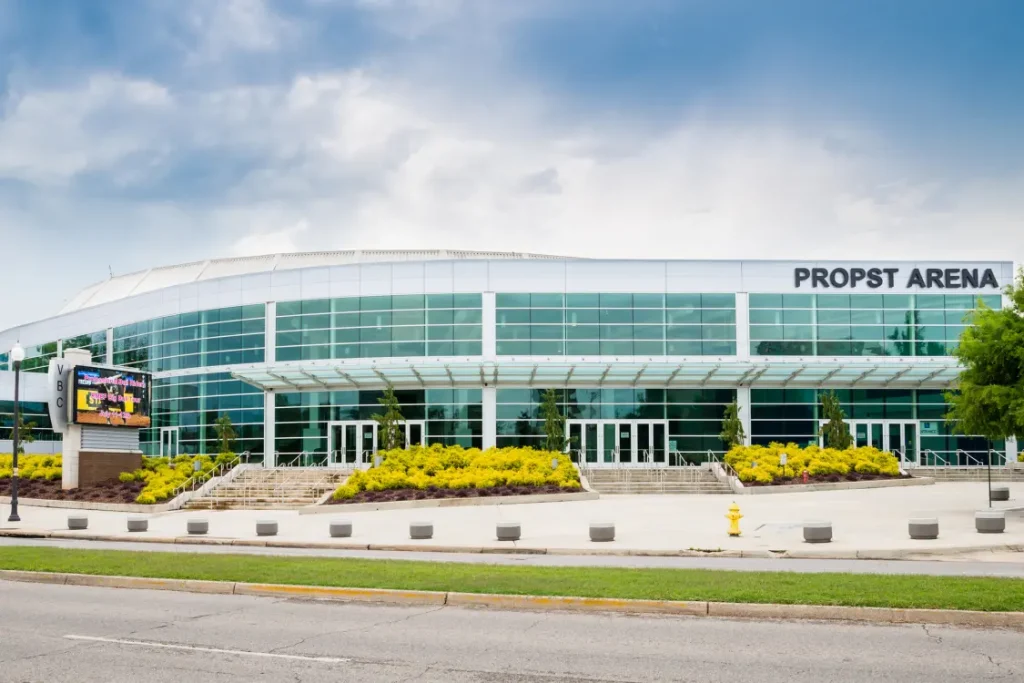As you well know, choosing the right market is critical in real estate investment. Getting in at the right time, when an economy is primed for growth and a community has an eye on expansion, can set your investment up to take off like a rocket. What better way to do that than in the Rocket City, Huntsville, AL? This burgeoning metropolitan area invests in infrastructure, attracts corporate investment, and focuses on community and culture, making it appealing for those searching for quality of life. The following are our top reasons for leveraging Huntsville’s investment potential.

1. Its Population
Rocket City may sound like a catchy name, but Huntsville earned the right to use it. In the 1960s, the then-comparatively small town was the development center for some of the first rockets used in the space program. Decades later, that aerospace legacy has translated into a workforce that is one of the country’s most highly educated and skilled. In fact, according to a report from CBRE, Huntsville was named one of the top cities for tech market growth potential.
Population growth and wage growth in the city have continued to grow over the last two decades. According to the Bureau of Labor Statistics, the metro area reported an unemployment rate of 2.8% in early 2024, well below the national rate of 4%.
2. Corporations Love Rocket City
Multiple major corporations are investing in Rocket City because Huntsville is attractive, thanks to its educated population and ambitious growth.
Celebrating its 50th anniversary in Huntsville, BASF marked the production of its 500 millionth catalyst at its local facility. The company employs over 700 people at the site, crucial in reducing air pollution through advanced catalytic converters. BASF’s continued investments have significantly contributed to the local economy, including an annual payroll of $73.6 million .
Navistar Inc, an Illinois-based company, has expanded its Huntsville facility, launching its next-generation International S13 Integrated powertrain production. The expansion project added 100 jobs and involved a $200 million investment in the plant, highlighting Huntsville’s strategic importance in advanced manufacturing.
Defense giant Lockheed Martin opened an $18 million, 122,000-square-foot engineering facility in Huntsville. This facility supports work on the US Army’s Black Hawk helicopters and the Missile Defense Agency’s Command and Control, Battle Management, and Communications (C2BMC) system. It is expected to house 500 employees, further solidifying Huntsville’s role in the national defense and aerospace sectors.

3. Huntsville is Investing in Culture and Quality of Life
Huntsville leaders understand that attracting big business means maintaining a happy workforce. That’s why they’ve invested heavily in the city’s arts and cultural infrastructure to increase quality of life and deliver on a key economic development driver.
The BIG Picture Master Plan is a community-driven strategy that guides Huntsville’s growth and development over the next several decades. It emphasizes creating a live/work/connect community, supporting local arts and culture, and developing healthy and active neighborhoods. This plan includes various initiatives to improve public amenities, connectivity, and economic development, ensuring residents’ high quality of life.

Key infrastructure projects include the development of John Hunt Park, which hosts numerous events and sports activities, and the construction of the Joe Davis Stadium, set to open in spring 2023, which will accommodate professional soccer and various community events. Additionally, the city is developing the Get-A-Way Skatepark and the new Kids’ Space playground, designed to be accessible for children of all abilities.
With a focus on sustainability, the city has invested in resource-friendly public transportation and manages an extensive network of greenways and trails that attract those with an active lifestyle. Cultural investments are on the rise, as well, with the expansion of the Von Braun Center and a comprehensive commitment to arts and education. Current and future Park projects will incorporate more residential housing, community event spaces, business and lifestyle services, retail, and restaurants.
4. An Infrastructure Built for Growth
Huntsville is pursuing a determined campaign to ensure the city’s infrastructure keeps up with all of this expansion.
The MidCity District is a significant focus for commercial and residential growth. The Orion Amphitheater, which opened in May 2022, has become a cultural hub, attracting over 150,000 visitors in its first season. The district also saw the groundbreaking of the Anthem House project, a $110 million mixed-use building, and the Wellory Living development, a $108 million multifamily project aimed at being the Southeast’s first net-zero multifamily development.
Downtown is experiencing a significant transformation with several high-profile projects. The Front Row Huntsville development, an 11-acre mixed-use project, broke ground in spring 2024. This development will include restaurants, retail, office spaces, and a hotel. The new City Hall and a $80 million federal courthouse were recently renovated and further revitalized the downtown area.
5. A Diverse Economy
Finally, the Huntsville economy displays the diversity necessary for these positive signs to continue well into the future. The Huntsville / Madison County region is home to various industry sectors beyond aerospace, technology development, and manufacturing.
For instance, the aerospace sector thrives with NASA’s Marshall Space Flight Center and numerous aerospace firms, while the automotive sector is bolstered by Mazda Toyota Manufacturing, which has reached 4,000 employees.
The Cummings Research Park, the second-largest in the U.S., hosts over 300 tech and research companies. The HudsonAlpha Institute for Biotechnology drives innovation in genomics, and the U.S. Army Cyber Command fosters growth in cybersecurity firms. Additionally, emerging industries include robotics, small satellite development, energy, and cybersecurity, contributing to Huntsville’s economic resilience and potential for sustained growth.
